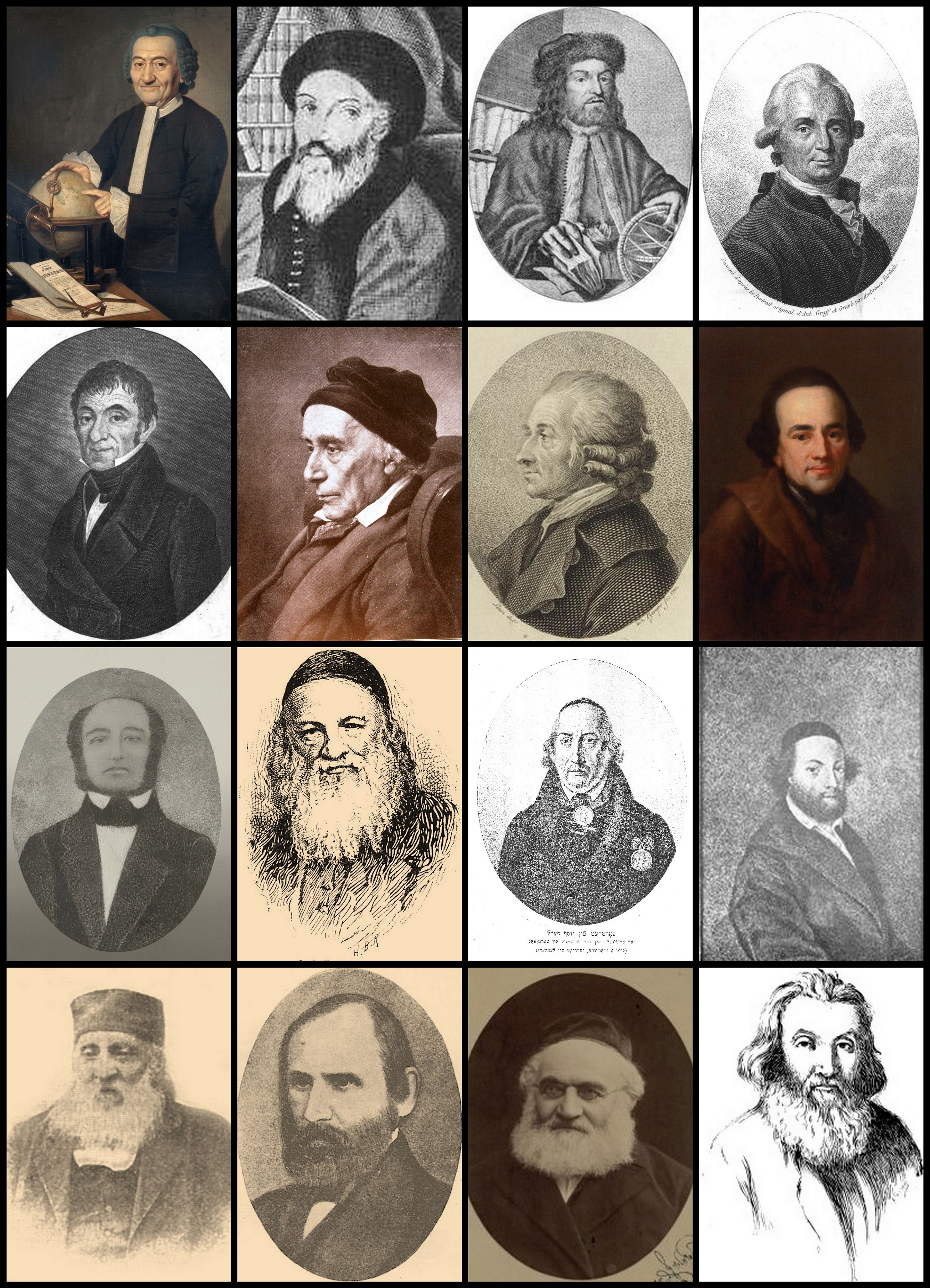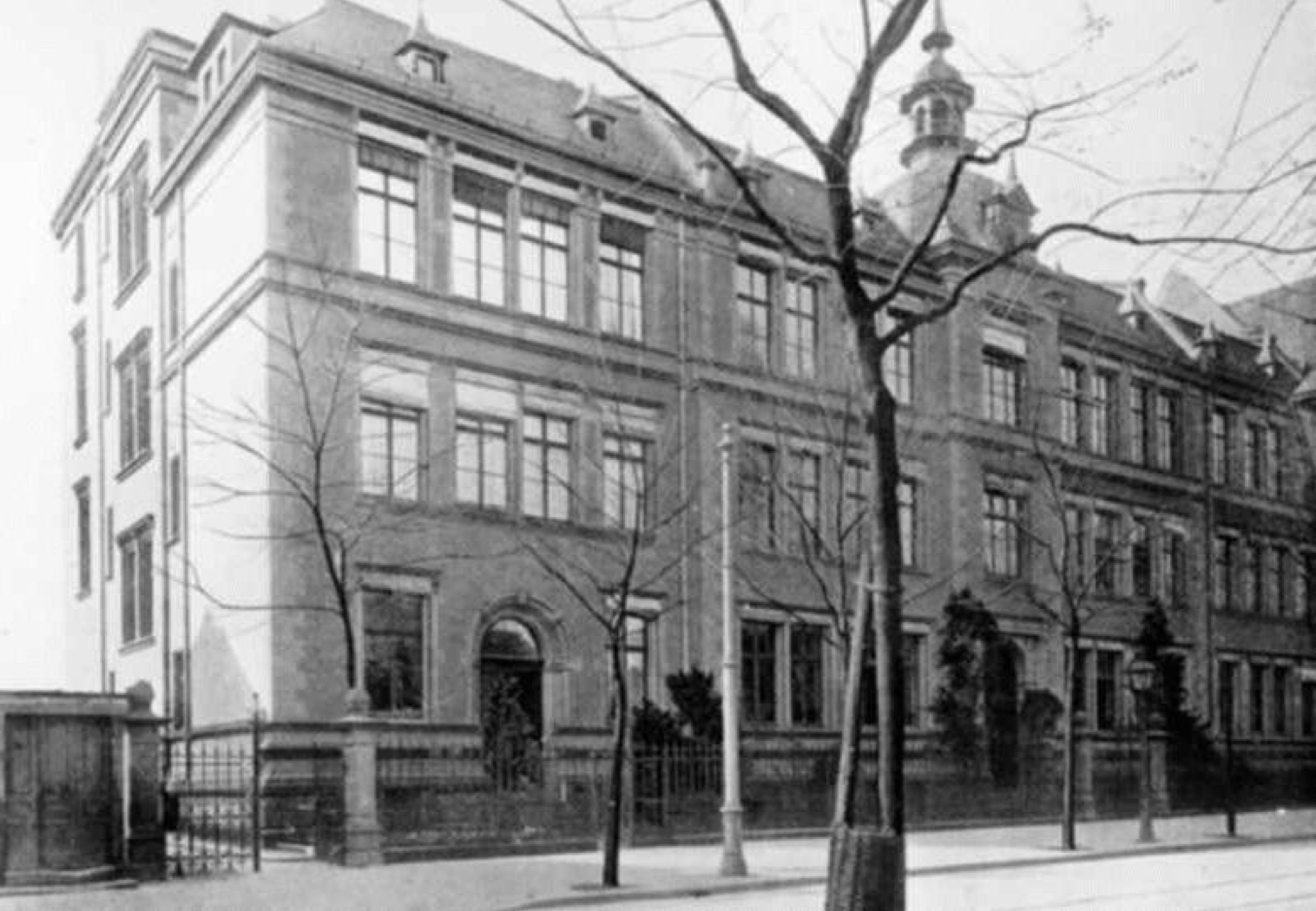|
Ludwig Philippson
Ludwig Philippson (28 December 1811 – 29 December 1889) was a German rabbi and author. Early life and education Ludwig Philippson was born in Dessau, the son of , a printer, writer, teacher, translator, publisher and a member of the Haskalah. He was educated at the gymnasium of Halle where his older brother Phöebus was studying medicine. Luwig published his first effort (published under his brother's name), a translation of the prophets Hosea, Joel, Obadiah, and Nahum, when he was fifteen years old. 1839 saw him continuing his education at the University of Berlin with a major in classical philology. As scholarships were not available to Jews and the family had exhausted their funds on educating Phöebus in medicine, Ludwig supported himself by tutoring and by doing literary work (some which became published). Career In 1830 he translated and annotated the works of two Judæo-Greek poets of Alexandria. A philological treatise on medical terms (''Hyle Anthropine'', 1831, etc. ... [...More Info...] [...Related Items...] OR: [Wikipedia] [Google] [Baidu] |
Dessau
Dessau is a town and former municipality in Germany at the confluence of the rivers Mulde and Elbe, in the '' Bundesland'' (Federal State) of Saxony-Anhalt. Since 1 July 2007, it has been part of the newly created municipality of Dessau-Roßlau. Population of Dessau proper: 67,747 (Dec. 2020). Geography Dessau is situated on a floodplain where the Mulde flows into the Elbe. This causes yearly floods. The worst flood took place in the year 2002, when the Waldersee district was nearly completely flooded. The south of Dessau touches a well-wooded area called Mosigkauer Heide. The highest elevation is a 110 m high former rubbish dump called Scherbelberg in the southwest of Dessau. Dessau is surrounded by numerous parks and palaces that make it one of the greenest towns in Germany. History Dessau was first mentioned in 1213. It became an important centre in 1570, when the Principality of Anhalt was founded. Dessau became the capital of this state within the Holy Roman Empire. ... [...More Info...] [...Related Items...] OR: [Wikipedia] [Google] [Baidu] |
Haskala
The ''Haskalah'', often termed Jewish Enlightenment ( he, השכלה; literally, "wisdom", "erudition" or "education"), was an intellectual movement among the Jews of Central and Eastern Europe, with a certain influence on those in Western Europe and the Muslim world. It arose as a defined ideological worldview during the 1770s, and its last stage ended around 1881, with the rise of Jewish nationalism. The ''Haskalah'' pursued two complementary aims. It sought to preserve the Jews as a separate, unique collective, and it pursued a set of projects of cultural and moral renewal, including a revival of Hebrew for use in secular life, which resulted in an increase in Hebrew found in print. Concurrently, it strove for an optimal integration in surrounding societies. Practitioners promoted the study of exogenous culture, style, and vernacular, and the adoption of modern values. At the same time, economic production, and the taking up of new occupations was pursued. The ''Haskalah'' p ... [...More Info...] [...Related Items...] OR: [Wikipedia] [Google] [Baidu] |
People From Anhalt-Dessau
A person ( : people) is a being that has certain capacities or attributes such as reason, morality, consciousness or self-consciousness, and being a part of a culturally established form of social relations such as kinship, ownership of property, or legal responsibility. The defining features of personhood and, consequently, what makes a person count as a person, differ widely among cultures and contexts. In addition to the question of personhood, of what makes a being count as a person to begin with, there are further questions about personal identity and self: both about what makes any particular person that particular person instead of another, and about what makes a person at one time the same person as they were or will be at another time despite any intervening changes. The plural form "people" is often used to refer to an entire nation or ethnic group (as in "a people"), and this was the original meaning of the word; it subsequently acquired its use as a plural form of ... [...More Info...] [...Related Items...] OR: [Wikipedia] [Google] [Baidu] |
People From Dessau-Roßlau
A person ( : people) is a being that has certain capacities or attributes such as reason, morality, consciousness or self-consciousness, and being a part of a culturally established form of social relations such as kinship, ownership of property, or legal responsibility. The defining features of personhood and, consequently, what makes a person count as a person, differ widely among cultures and contexts. In addition to the question of personhood, of what makes a being count as a person to begin with, there are further questions about personal identity and self: both about what makes any particular person that particular person instead of another, and about what makes a person at one time the same person as they were or will be at another time despite any intervening changes. The plural form "people" is often used to refer to an entire nation or ethnic group (as in "a people"), and this was the original meaning of the word; it subsequently acquired its use as a plural form of ... [...More Info...] [...Related Items...] OR: [Wikipedia] [Google] [Baidu] |
1889 Deaths
Events January–March * January 1 ** The total solar eclipse of January 1, 1889 is seen over parts of California and Nevada. ** Paiute spiritual leader Wovoka experiences a vision, leading to the start of the Ghost Dance movement in the Dakotas. * January 4 – An Act to Regulate Appointments in the Marine Hospital Service of the United States is signed by President Grover Cleveland. It establishes a Commissioned Corps of officers, as a predecessor to the modern-day U.S. Public Health Service Commissioned Corps. * January 5 – Preston North End F.C. is declared the winner of the inaugural Football League in England. * January 8 – Herman Hollerith receives a patent for his electric tabulating machine in the United States. * January 15 – The Coca-Cola Company is originally incorporated as the Pemberton Medicine Company in Atlanta, Georgia. * January 22 – Columbia Phonograph is formed in Washington, D.C. * January 30 – Rudolf, Crown Prince of Austri ... [...More Info...] [...Related Items...] OR: [Wikipedia] [Google] [Baidu] |
1811 Births
Events January–March * January 8 – An unsuccessful slave revolt is led by Charles Deslondes, in St. Charles and St. James Parishes, Louisiana. * January 17 – Mexican War of Independence – Battle of Calderón Bridge: A heavily outnumbered Spanish force of 6,000 troops defeats nearly 100,000 Mexican revolutionaries. * January 22 – The Casas Revolt begins in San Antonio, Spanish Texas. * February 5 – British Regency: George, Prince of Wales becomes prince regent, because of the perceived insanity of his father, King George III of the United Kingdom. * February 19 – Peninsular War – Battle of the Gebora: An outnumbered French force under Édouard Mortier routs and nearly destroys the Spanish, near Badajoz, Spain. * March 1 – Citadel Massacre in Cairo: Egyptian ruler Muhammad Ali kills the last Mamluk leaders. * March 5 – Peninsular War – Battle of Barrosa: A French attack fails, on a larger Anglo-Portugue ... [...More Info...] [...Related Items...] OR: [Wikipedia] [Google] [Baidu] |
Leo Baeck Institute, New York
The Leo Baeck Institute New York (LBI) is a research institute in New York City dedicated to the study of German-Jewish history and culture, founded in 1955. It is one of three independent research centers founded by a group of German-speaking Jewish émigrés at a conference in Jerusalem in 1955. The other Leo Baeck institutes are Leo Baeck Institute Jerusalem and Leo Baeck Institute London, and the activities of all three are coordinated by the board of directors of the Leo Baeck Institute. It is also a founding partner of the Center for Jewish History, and maintains a research library and archive in New York City that contains a significant collection of source material relating to the history of German-speaking Jewry, from its origins to the Holocaust, and continuing to the present day. The Leo Baeck Medal has been awarded by the institute since 1978 to those who have helped preserve the spirit of German-speaking Jewry in culture, academia, politics, and philanthropy. Hist ... [...More Info...] [...Related Items...] OR: [Wikipedia] [Google] [Baidu] |
Samson Raphael Hirsch
Samson Raphael Hirsch (; June 20, 1808 – December 31, 1888) was a German Orthodox rabbi best known as the intellectual founder of the '' Torah im Derech Eretz'' school of contemporary Orthodox Judaism. Occasionally termed ''neo-Orthodoxy'', his philosophy, together with that of Azriel Hildesheimer, has had a considerable influence on the development of Orthodox Judaism. Hirsch was rabbi in Oldenburg, Emden, and was subsequently appointed chief rabbi of Moravia. From 1851 until his death, Hirsch led the secessionist Orthodox community in Frankfurt am Main. He wrote a number of influential books, and for a number of years published the monthly journal ''Jeschurun'', in which he outlined his philosophy of Judaism. He was a vocal opponent of Reform Judaism, Zionism, and similarly opposed early forms of Conservative Judaism. Early years and education Hirsch was born in Hamburg, which was then a part of Napoleonic France. His father, Raphael Arye Hirsch, though a merchant, dev ... [...More Info...] [...Related Items...] OR: [Wikipedia] [Google] [Baidu] |

_1938.jpg)


.jpg)
